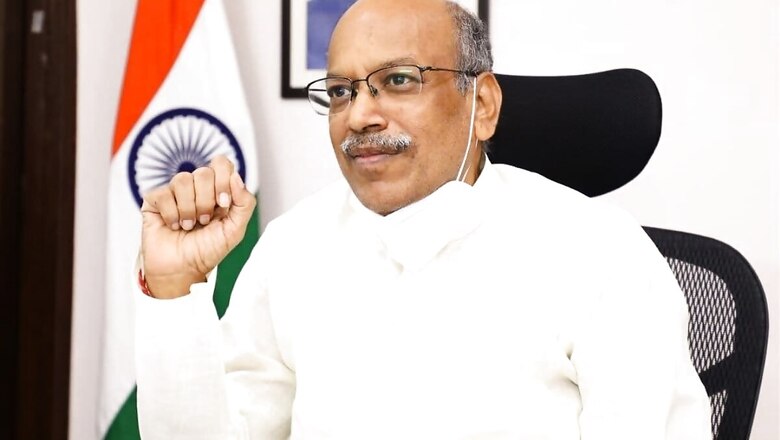
views
India will be increasing the intake capacity at schools, said Minister of State for Education Sanjay Dhotre at the G20 Education Ministers’ Meeting on Tuesday. These additional seats will aim to bridge the gap and promote the inclusive school, especially the gap in gender and social category at all levels of education.
This comes at a time when several students, especially from socially and economically weaker sections, have dropped out of schools. Schools have been closed across India since mid-March and classes are being conducted online.
The government is also tracking children, who are out of school and link them with education. Besides, children from rural areas who do not have proper access to online education due to lack of finances and access of quality internet and devices.
Dhotre said that the government is also monitoring the learning outcomes of students in the vulnerable categories and ensuring physical safety as well as enabling mechanisms for children with special needs.
Apart from these, he also noted that online education has been increased from 20 per cent to 40 percent. More than 100 top-ranked universities have been allowed to introduce full-fledged online education programmes, he said.
He also spoke about the availability of digital educational content on various e-learning platforms like DIKSHA, SWAYAM and the use of the SWAYAM PRABHA TV channels and the Community Radio. He also said that India is promoting multiple pathways to strengthen open and distance learning programmes.
A National Education Technology Forum is being set up under NEP 2020 to aid technology-led education, he said, adding that the education policy envisages equitable and inclusive education for all, with special focus on children and youth, especially girls, from socially and economically disadvantaged groups.
The minister further stated that India is committed to helping its youth develop 21st-century knowledge and skills to ensure they are employable. “Our approach has been to integrate vocational education with general academic education, with focus on demand-driven, competency-based, and modular vocational courses,” he added.
It is essential that G20 members recognise the need to equip their youth for a smooth transition into the workspace after completing their education, especially for learners from socially and economically disadvantaged population groups, who are more at risk of being left behind, Dhotre said during the Joint Meeting of Ministers of Education and Ministers of Labour and Employment.
The NEP 2020 aims to provide at least 50 per cent of learners in school and higher education system with vocational education, he said adding that vertical mobility for students from the vocational stream is being ensured through a National Skills Qualifications Framework. This framework will be the basis for reintegration of dropouts from the formal system, he added.
Dhotre informed that India is also enhancing post-education apprenticeship opportunities for youth by realigning the existing scheme of the National Apprenticeship Training Scheme.
Read all the Latest News, Breaking News and Coronavirus News here.

















Comments
0 comment